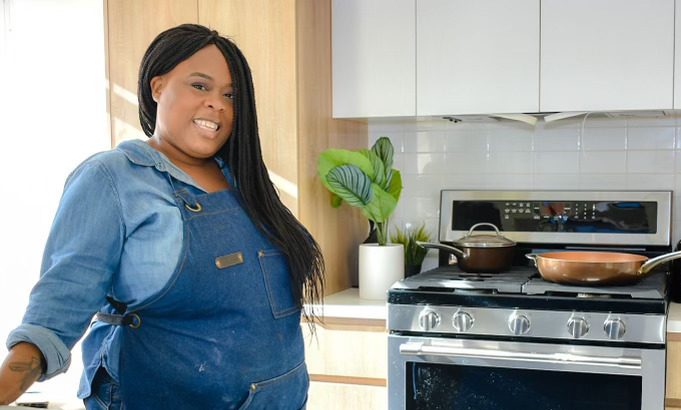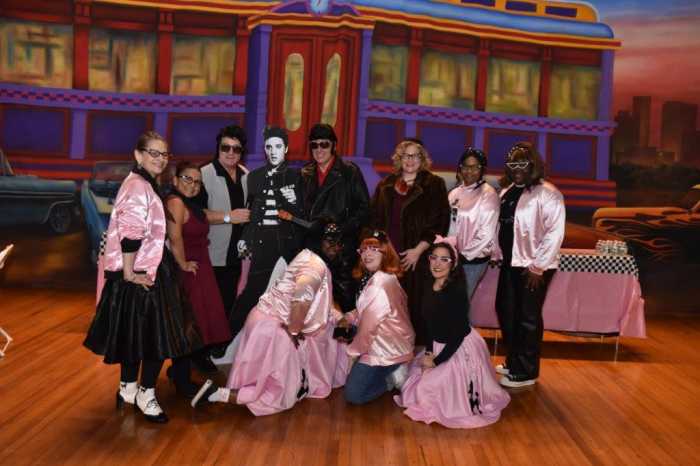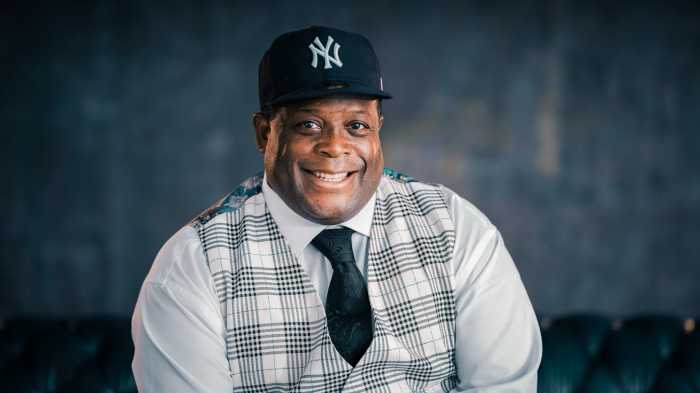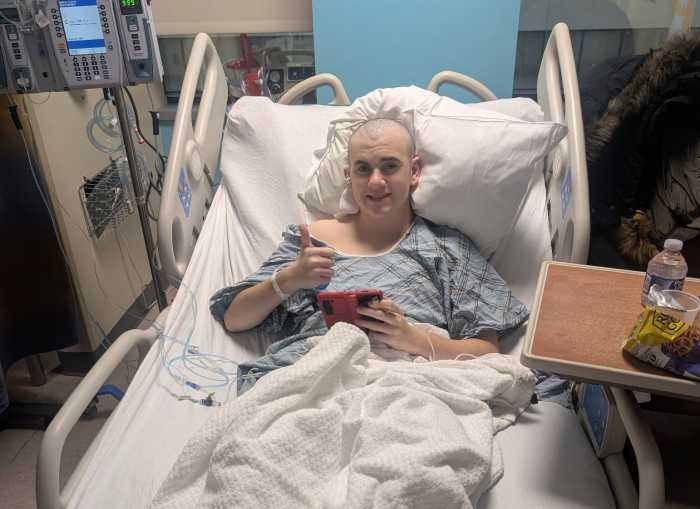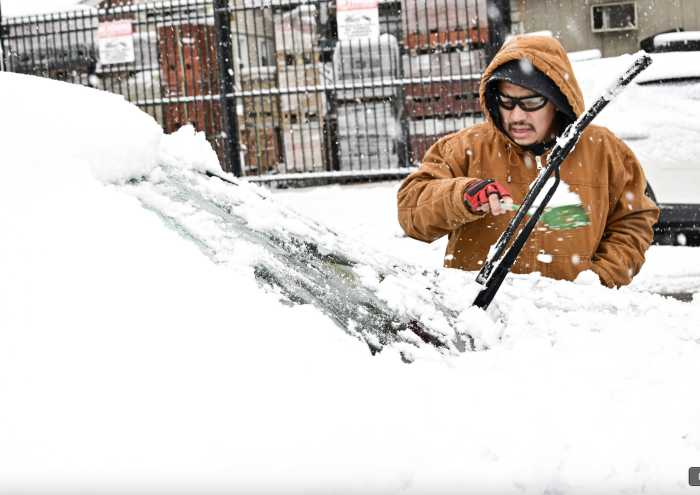Kimberly Parris, 42, is a jack of all trades. She’s a mother, chef, entrepreneur and innovator.
The Rosedale resident has spent the past 20 years of her life on a journey where she started as an educator before going on to establish a successful catering business. Currently, Parris is also creating an app designed for Black, Indigenous and Other People of Color (BIPOC) food businesses and agriculturalists.
Parris’ story began when she moved to Rosedale in 1995 to attend Benjamin N. Cardozo High School in Bayside. At the time, she dreamt of becoming a lawyer. By the time she graduated, she went to Temple University to study law, and, about halfway through, she shifted gears and attended York College, which led her to start a career in education.
In 2007, Parris began working for nonprofit organizations that partnered with the Department of Education to bring college readiness services to at-risk high school students. As an educator and instructor, she wanted to show the students that a college education was obtainable.
“I wanted them to recognize that they had multiple options, and I felt that because they were at-risk students, they were not being presented with all of their potential options,” she said.
Parris nurtured her lifelong love of cooking while juggling her career in education and responsibilities as a single mother.
“I had been cooking since I was eight. I remember the first time I ever cooked a recipe from scratch was from my Highlights magazine,” she said.
Following her true dream
One fateful day, during a storybook reading, her daughter, who was four years old at the time, asked her what her dream was. “I was talking to her about what her dream was, and she was telling me at the time she wanted to be a marine biologist or a fashionista, and then she turned around and asked me, ‘Mommy, what’s your dream?’” she said.
Parris said she was taken off guard at the moment, but she responded saying: “You know, I feel like I want to cook because I love doing that.” That same night, Parris was putting together lesson plans when an ad popped up for culinary school. “I said, well, if that wasn’t a sign then I don’t know what is.”
Later that year, Parris attended New York Restaurant School in the evenings while juggling her 9 a.m. to 5 p.m. job and nurturing her close relationship with her daughter.
Culturally, Parris grew up in a Bajan and Trinidadian household, eating foods imbued with vibrant spices and seasonings. She recalled her shock when she learned to sear a chicken breast using only salt and pepper.
“I remember being so shocked that this little simple chicken breast with salt and pepper was delicious.” Even her family was taken aback. “They were like, ‘this is delicious, what did you put on it?’ I said, ‘salt and pepper.’ I walked away and they followed me into the kitchen,” she said, laughing.
Parris believes culinary school taught her an array of new cooking techniques and laid the foundation for running a successful business later in her career. It also taught her perseverance.
She recalled a time when her instructor did not believe she would make it in the industry. She was determined to prove him wrong.
“I remember my professor, he had told me… he wasn’t sure if I was going to make it in restaurants. I like challenges, so I would go home and every opportunity I got, I would practice my skills,” she said.
By the time her practical exam came, she had the second-highest score in her class. Parris said that was one of many instances during her time in the industry when people would often second-guess her or be shocked when she was in charge of the kitchen.
She attributes this struggle to the realities of the male-dominated culinary industry, exacerbated by her even rarer status as a Black woman in central restaurant roles. She worked in key positions at Eataly, Whole Foods and standalone restaurants.
“When I was running multiple restaurants at once, and they would ask for management, or they would ask the chef to come and touch the table, I think there was only one time that the person wasn’t shocked that it was a Black woman that came to the table,” she said.
Culinary career takes off
After graduating from culinary school in 2009, Parris was figuring out the next steps in her career. She applied for and participated in two popular food competition shows: ‘Rocco’s Dinner Party’ and the Food Network competition show ‘Chopped.’ She won the Rocco’s Dinner Party competition, but her pilot episode did not air, resulting in a partial compensation of the $20,000 prize.
Parris said her experience paved the way for her to quit her teaching job in 2010 and start her personal chef and catering business- originally called KParris Catering and Personal Chef Services.
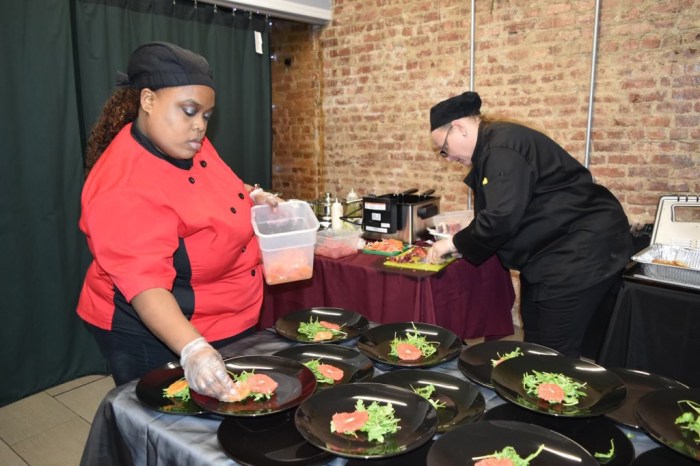
Her first big gig was with a large nonprofit organization, where she catered an event attended by 500 people. She found other opportunities- catering for the cast and crew of Chicago, the musical- before she moved to work on her business part-time while rising up the ranks in Whole Foods’ culinary and management departments starting in 2012.
Her time with Whole Foods led her to run the Prepared Foods Department at Whole Foods in Union Square and Columbus Circle before she opened the East 86th Street store as the Prepared Foods Team leader.
Throughout the years, Parris’ career has taken her to many places. In 2015, she began working at celebrity chef Marcus Samuelsson’s restaurant at JFK Airport.
After Samuelsson’s restaurant, in 2017, Parris became a sous chef at Verdure and Rise e Risotto inside Eataly and eventually worked her way up to chef de cuisine at the popular Italian marketplace located in Manhattan.
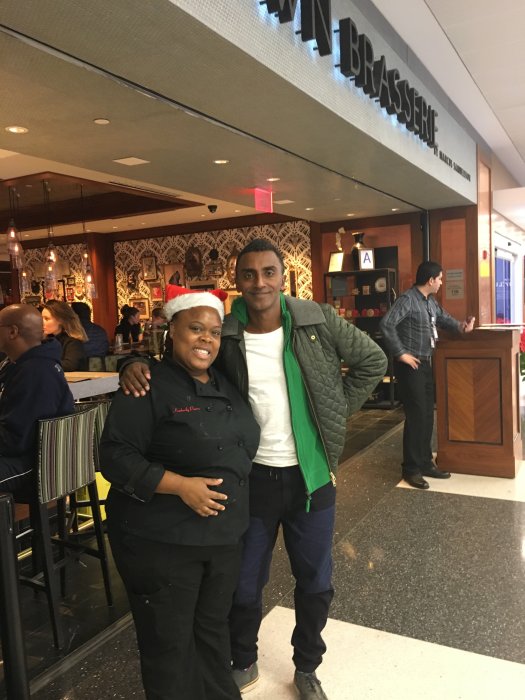
Later that year, she was injured on the job, and Parris knew it was time to start phasing out of Eataly. “The plan was never to stay in restaurants as long as I did. The plan was always to run my own business,” she said.
She continued to work at Eataly, biding her time as she dedicated part of her schedule to her business. By 2018, she rebranded K Parris Catering and Personal Chef Services as the CaribDiva and started to do pop-up dinners, which became her calling card. “I catered weddings, special events and curated experiences with these dinners,” she said.
Going all in on the business
In 2020, she decided to start working on her business full time, right before the pandemic shut the world down. The COVID-19 pandemic made Parris immediately pivot, and the pop-up dinner experience went contactless. The dinners became a three-course delivered meal with a small gift and recipes. “That became very popular and got me a feature in New York Magazine, in Grub Street that year,” she said
Parris became very successful despite the challenges of the pandemic and netted six figures in 2020 and 2021.
CaribDiva blossomed, leading to the opening of another unique business called Cuterie, which was inspired by charcuterie boards. Cuterie is a meal service provided to storefronts that do not have kitchens. Parris creates themed boxes of mini-meals, complete with snacks and sides from BIPOC and women-owned businesses she partners with.
“I took it one step further and thought this would be a really dope way to highlight other food creatives, other chefs, other women of color food businesses and places that don’t get the shine they deserve,” she said. Parris said she and her team did their due diligence to research the businesses they partner with, and took time to feature the founders of the various businesses on social media.
When Parris started Cuterie in 2022, she aimed to work with 125 businesses. She was able to feature 25 of those businesses in Cuterie boxes and was awarded a grant from a program called Self Made. To help scale her business, Parris also accepted a position in a venture capital incubator program.
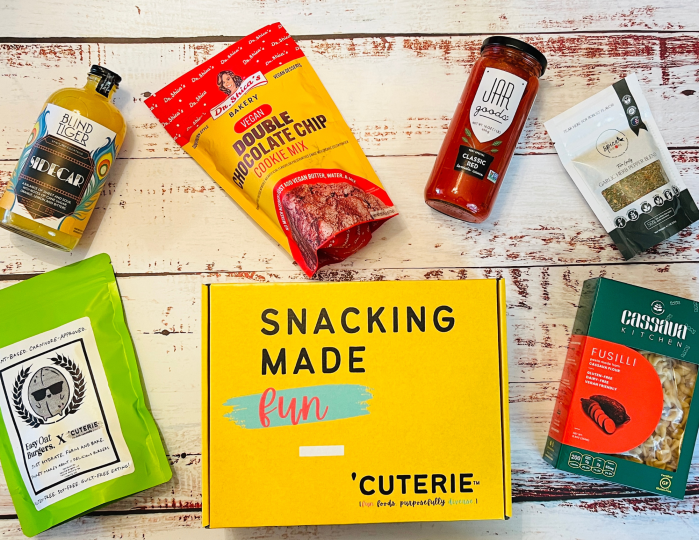
From there, she started a successful crowdfunding campaign. By 2023, she had doubled the number of businesses she worked with and had the opportunity to provide her services at a Morehouse College event. Currently, Parris is creating an online marketplace through her CaribDiva website to sell Cuterie products.
Parris did not end with Cuterie—currently, she is working on an app called FoodNoir, designed to be a marketplace that brings a systemic solution to food inequity by providing nutritious meals and highlighting BIPOC food and agricultural businesses.
Parris says consumers will use the app’s map feature to find nutritious food options in their area while supporting BIPOC businesses. She also plans to add an incubator aspect of the app to help aspiring small business entrepreneurs launch within the industry.
Parris spent a year doing research and development and enrolled in Apple’s Entrepreneurship Camp. She currently has a Kickstarter campaign to fund the app development.
As for what Parris hopes for in the future? She says she wants to keep on helping and inspiring others.
“I didn’t intend to be a disruptor. I just wanted people to be seen—I just wanted to be seen. I wanted anyone who’d ever been in the food industry that might have been like me to have the space and the capacity to be seen as well. So I would say that that’s the goal.” she said.

